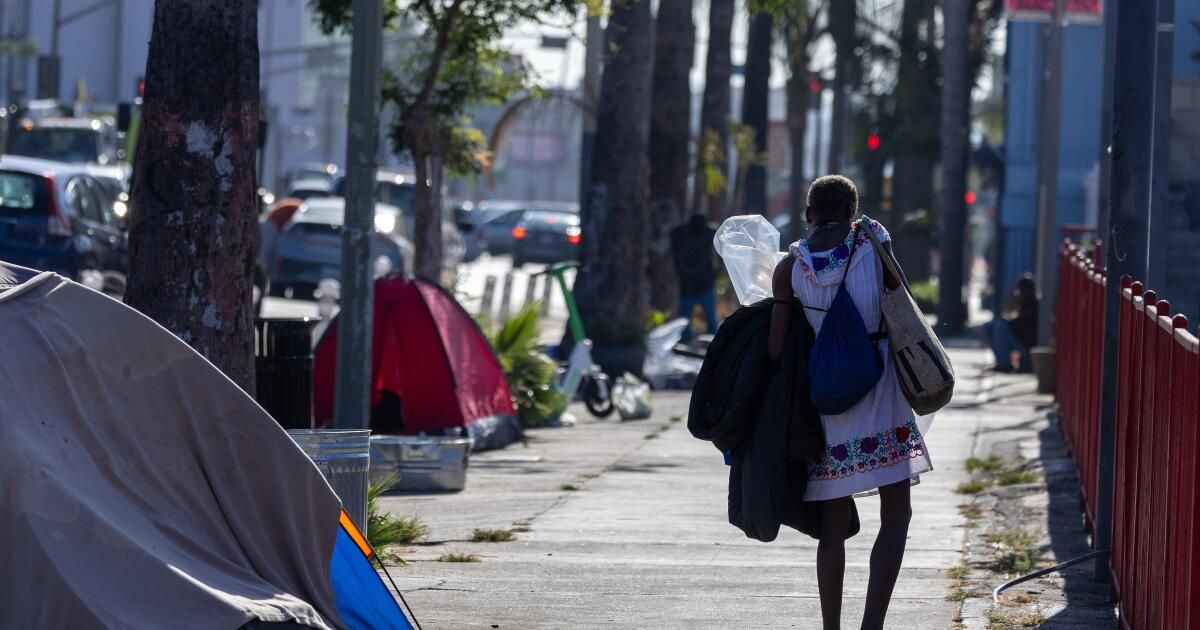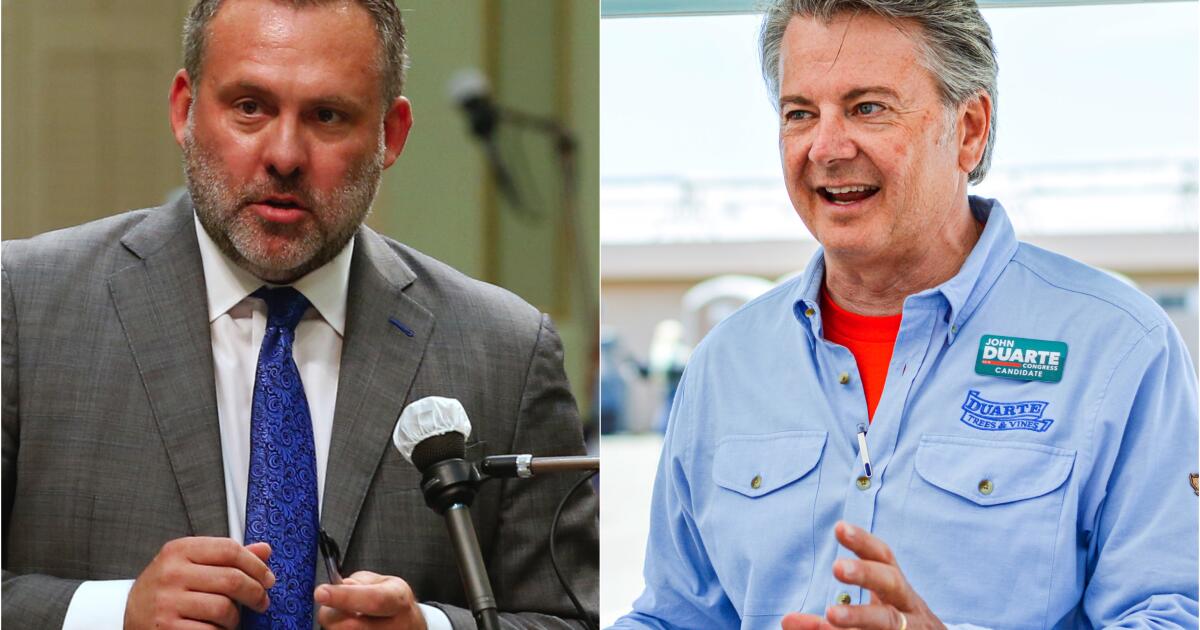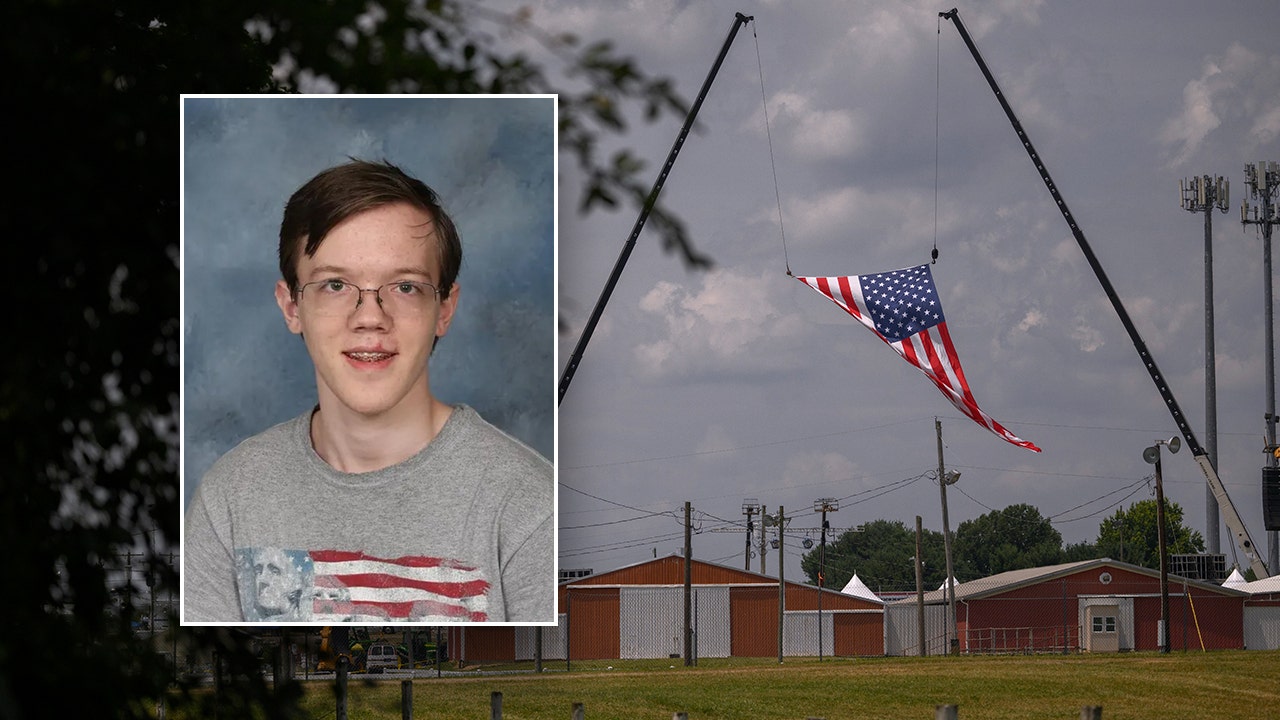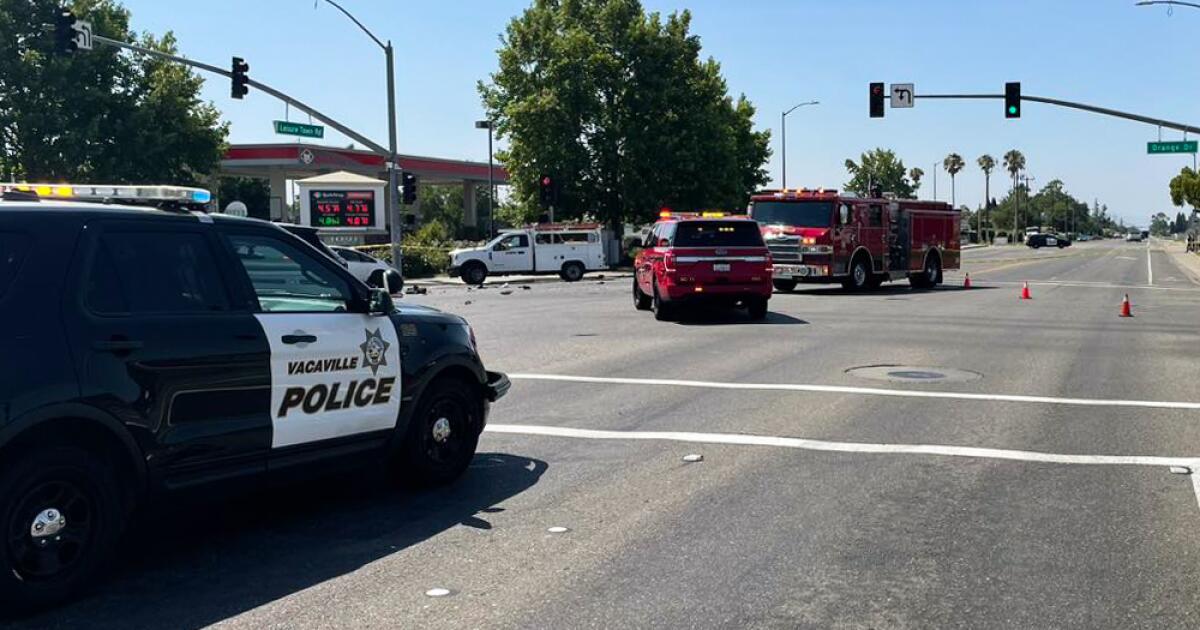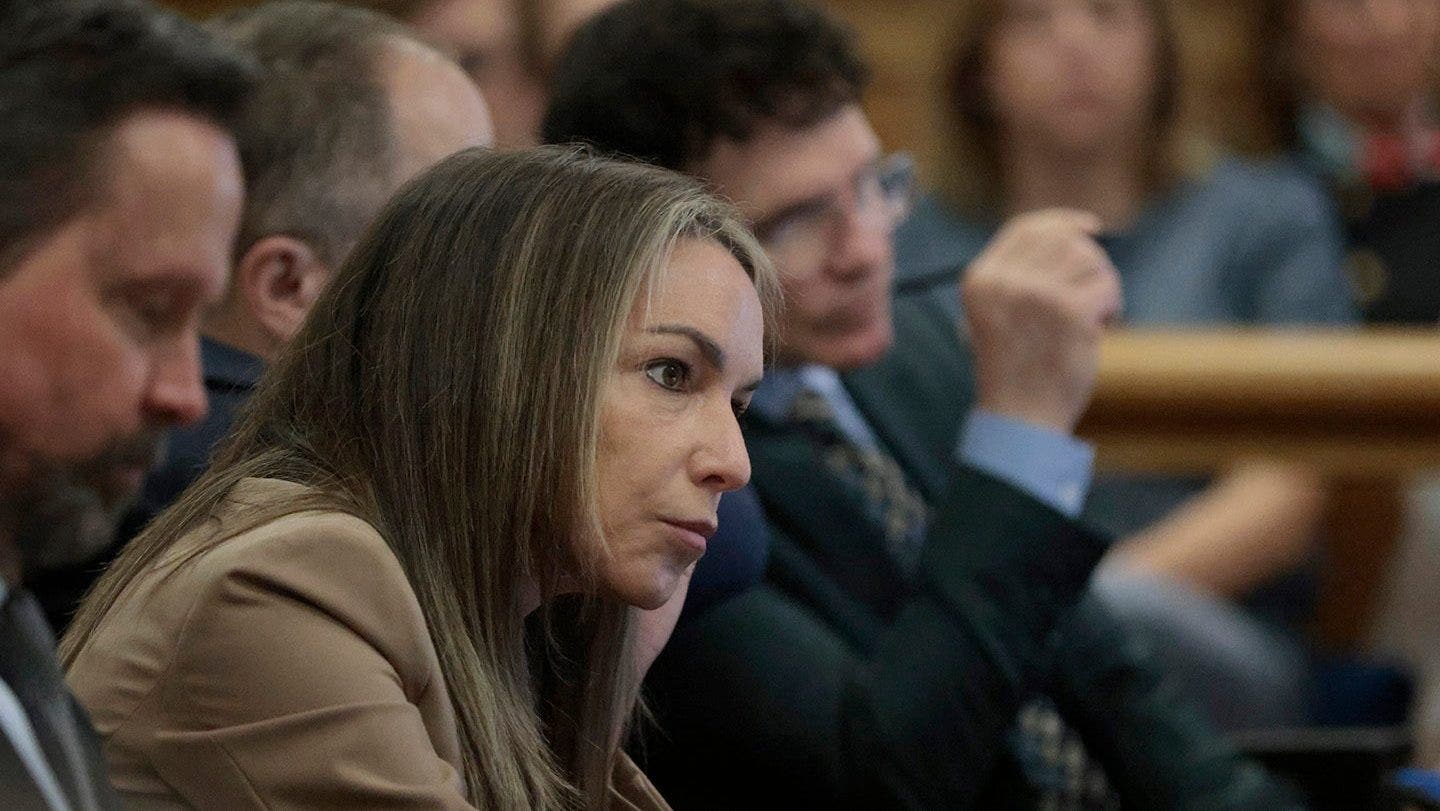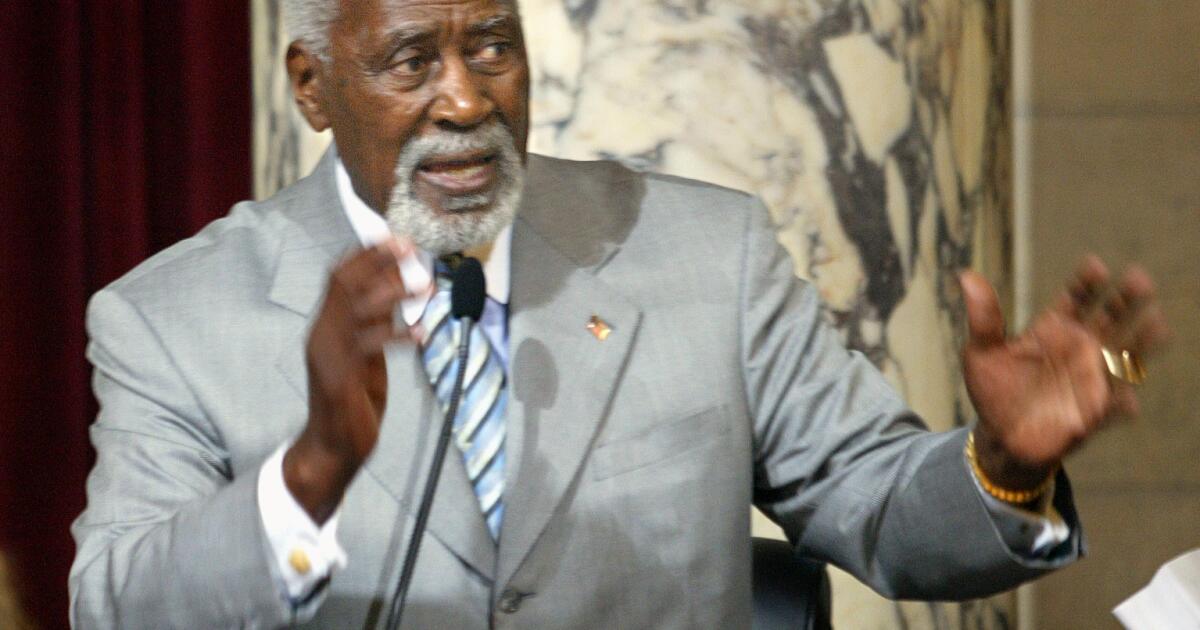A November ballot measure that would double the county's quarter-cent sales tax for homeless people is leading in a preliminary poll among Los Angeles County voters but does not yet have enough support to pass.
Forty-seven percent of likely voters surveyed said they would vote in favor of the new half-cent tax if the election were held immediately, a margin that is three percentage points short of the majority needed for passage. Thirty-six percent said they would vote against it, and 17 percent were undecided.
That lukewarm support was reflected in voters’ views of the progress made with the hundreds of millions of dollars raised under the current tax, called Measure H, which was approved by more than two-thirds of voters in 2017. Fifty-one percent said they were very dissatisfied with the results and 6 percent were somewhat dissatisfied.
Even though spending on the county’s Homeless Initiative reached more than $600 million in the 2023-2024 budget, the number of homeless people rose steadily for five years before leveling off this year.
The poll, conducted from July 31 to Aug. 11 by UC Berkeley’s Institute of Governmental Studies and co-sponsored by The Times, had a margin of error of three percentage points, making the race currently a tie.
“I would say 47% is interesting,” said Mark DiCamillo, director of the Berkeley-based IGS poll. “It’s close. I expect a close election.”
The new measure, officially called Affordable Housing, Homelessness Prevention and Solutions Now, would replace Measure H, which is set to expire in 2027, and extend it indefinitely unless repealed by a new vote.
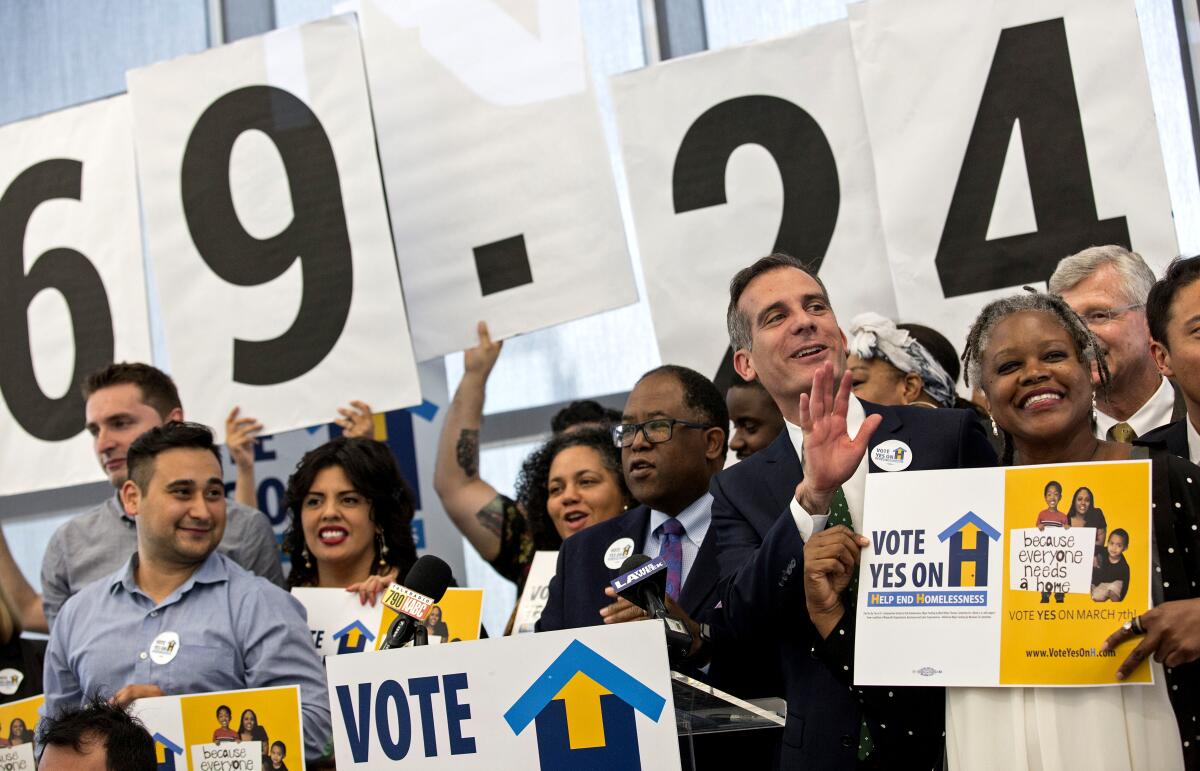
Then, Los Angeles County Supervisor Mark Ridley-Thomas, center, and then Los Angeles Mayor Eric Garcetti, right, with supporters of Measure H on the ballot as the final vote tallies are announced, approved with 69.24% in Los Angeles on March 17, 2017.
(Brian van der Brug/Los Angeles Times)
It is estimated that it would raise 1.2 billion dollars annually.
The money would fund programs for homeless people, including mental health care, substance abuse treatment, affordable housing, rental subsidies, job counseling and services for vulnerable populations, including homeless families, veterans, battered women, seniors and people with disabilities.
The 20-page measure specifies that 60% of the revenue would go toward homeless services and 15% of that amount would be distributed to cities based on the annual count at a given point in time. An additional 35.75% would go to the Los Angeles County Affordable Housing Solutions Agency, a new entity created last year by the California Legislature to help people stay in their homes and increase housing and shelter for the homeless. The money could be used for rental assistance, purchase or leasing of existing homes and new construction.
Supporters of the measure said they designed it to make the strategy for using funds more results-oriented and incorporate more explicit accountability than in Measure H.
It would require programs to set and meet specific goals and require regular audits to ensure that those with the highest rates of effectiveness receive sufficient funding.
Supporters of the measure said they were not alarmed by the responses to the survey's two questions about the sales tax, which came at the end of a long series of questions about the race for Los Angeles County district attorney.

A homeless man waits to be transported to housing near encampments being cleared along Hollywood Boulevard and Gower Street on Thursday in Hollywood.
(Brian van der Brug/Los Angeles Times)
His own poll earlier this year showed support as high as 60%. And the yes vote, though not quite 50%, was far ahead of the no vote in the new poll.
“We were leading in our February poll and we have an 11-point lead in this poll because voters want to see a new strategy to create safer, cleaner neighborhoods by removing more encampments, providing more mental health treatment, and holding programs accountable to reduce homelessness,” said campaign consultant Yusef Rob.
“If that funding is lost, homelessness will increase by at least 25% as people lose services and housing. No one wants to go backwards and failing to pass this measure would be catastrophic,” said Rob.
Two committees have been preparing for a campaign that will begin next month.
The Angeleno Project, a nonprofit that supports the measure, released a poll in March showing likely support among 60 percent of likely voters: 39 percent of respondents said they would definitely support it, 15 percent said they supported it but might change their minds, and 6 percent said they were leaning yes.
Breakdowns of the February survey results showed even greater support for specific elements of the measure: increasing mental health treatment for those experiencing homelessness (82%), preserving existing affordable housing (78%), reducing the cost of building affordable housing and housing for the homeless (77%), reducing the burden on local emergency rooms (74%), creating pathways out of poverty through construction (74%), and building more affordable housing (72%).
The new poll showed a stark divide by political ideology and income. Those who identified as liberals supported him 68%, compared with 23% of conservatives, and those with lower incomes were more likely to support him. Sixty percent of those earning between $60,000 and $99,999 said they would vote yes, compared with just 31% of those earning between $100,000 and $199,999.
DiCamillo said the Berkeley IGS poll will survey voters again in September and October.
“As we get closer to the election, we’ll have a more accurate picture of who is likely to vote,” DiCamillo said. “No one can make an accurate projection of who is likely to vote until very close to the election date.”

